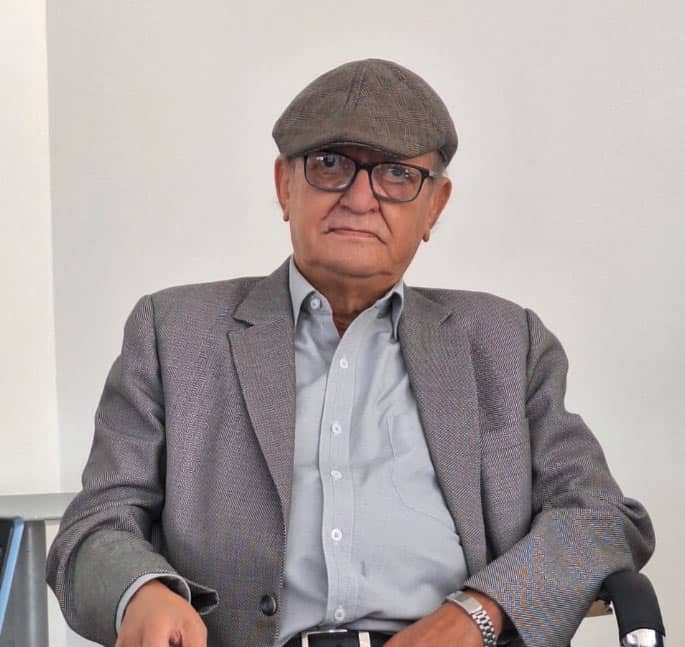By Elio Villaseñor G.
“Today's youth are tomorrow's leaders.”
Nelson Mandela
Donald Trump's arrival at the White House marked a period of setbacks on crucial issues such as the environment, human rights, and the proliferation of fake news and disinformation networks.
This context presents a challenging reality for young people, who must find the strength in their creativity and imagination to build initiatives that not only allow them to resist, but also to be protagonists in the face of the profound changes transforming the world. In this context, the role of young people as agents of change is fundamental in a scenario where information is fragmented and dominant narratives like Trump's perpetuate exclusionary models.
Young people cannot limit themselves to being mere spectators or sounding boards for these dominant narratives.
The times demand a critical and proactive attitude in the face of new challenges, especially in the face of digital platforms and social media that seek to manipulate perceptions, generate polarization, and fuel fear. They need to develop digital skills that allow them to discern between verified information and misinformation, as well as promote content that reflects inclusive and diverse realities.
It is essential to foster spaces for dialogue and build bridges of collaboration to find paths toward collective solutions together with other sectors of society. Therefore, building intergenerational and multidisciplinary networks will allow them to articulate more robust solutions with greater impact on the public agenda and the challenges that arise globally.
Faced with the threats of misinformation and the exclusionary dynamics that characterize the Trump era, young people have not only the opportunity, but also the responsibility, to lead a shift toward a more inclusive and equitable future. Their innovative participation in politics, social activism, and technology can make a difference in creating a more just environment for themselves and society at large.
Trump's alliance with big tech companies and his polarizing rhetoric are leading us toward a world where xenophobia and exclusion seem to be gaining ground.
This model favors a privileged few while the majority is excluded from the circles of power and opportunity, perpetuating structural inequalities that particularly affect the most vulnerable communities.
This environment, both globally and nationally, represents a direct threat to collective well-being and fundamental rights.
In our country, the situation is aggravated by the government's tendency to minimize or hide national problems, making it difficult for young people's voices and proposals to gain a place on the public agenda. This is largely due to the lack of spaces for effective participation and the lack of sensitivity and receptivity on the part of institutions toward new ideas, which hinders the development of innovative and sustainable solutions.
At this level, there is a lack of a care system that addresses the needs of young people who care for people in need, especially those in vulnerable situations. An adequate care system is essential for young people to develop their potential and contribute to building a more just and inclusive country, while ensuring their educational, economic, and emotional well-being. This involves strengthening dual education programs, guaranteeing access to mental health services, and creating support mechanisms to facilitate their transition to adulthood in a full and independent manner.
In line with the above, in this edition, the topic of the care system is a central theme of the collaborations that make up the JuventudES Platform. Erika Martínez Macedo shares her article "Youth Proposals: Opportunities for a Comprehensive Care System," as does Fernanda Monserrath, who invites us to read the document "Youth: Our Charter of Rights to Care and Work." Melani Rubí Santos also shares her article "The New Government and Youth in the Face of the Care System in Mexico City." Along these lines, SERAJ shares her collaboration entitled "The Workplace Reality of Young People in Ecatepec and the Consequences of a Deficient Care System." With a more regional perspective, Dr. Jessica Espinoza shares her analysis of "Care for People from a Gender and Human Rights Perspective." Finally, Ana Sánchez and Dayron Escorcia share their experiences and implementation of care systems in Bogotá, Colombia.
Ensuring that young people's demands are heard and translated into concrete actions will be one of the greatest challenges. Therefore, it is imperative that young people strengthen their political and social influence through effective communication efforts, strategic alliances, and active participation in decision-making, with the goal of generating a positive impact on their communities and building a more inclusive and democratic country.
In summary, the Trump era represents a crossroads, but also an opportunity for young people not only to react to problems, but to lead change.
With creativity, determination, and collaboration, they can build a future that confronts setbacks and places justice, sustainability, and inclusion at the heart of the global agenda.






